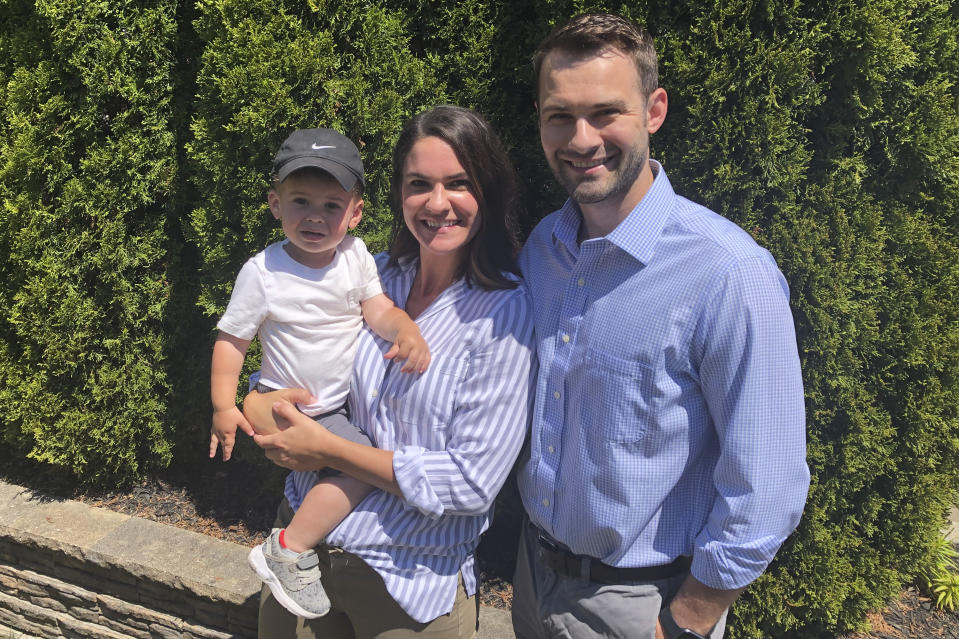How the pandemic could change how millennials think about personal finance
Kevin is a certified financial planner and founder of Washington, D.C.-based Illumint, which offers fee-only financial planning specifically for young couples and families.
The Great Recession offered particularly strong evidence that millennials faced different financial circumstances than our parents did as young adults. With more than 30 years until retirement, though, our generation still had a long time horizon to try to overcome our unique financial challenges.
But the COVID-19 pandemic is quickly changing that calculation. As a result, we likely will need to approach our personal finances differently in the years and decades ahead.
Here are four aspects of personal finance that may change the most:
Rethinking spending habits

Many of us use credit cards almost exclusively to make daily purchases. This approach to spending can offer advantages. But the typical lag in timing between transaction and payment also can make budgeting more difficult. In addition, we’ve become increasingly reliant on automated payments. This may be a positive development for our monthly rent, but less so for subscriptions or memberships we rarely use.
The pandemic has disrupted these familiar patterns, though. Much of our habitual -- and perhaps low-value -- spending has slowed down or stopped entirely. We’ve also shed the social expectation to spend regularly, even if we have picked up new versions of financial stress. Many of us may be willing right now to pay almost anything to attend a concert or sporting event. Overall, though, I expect that we’ll resist returning to the same spending habits that we held before the pandemic.
Emergency funds becomes No. 1

The money that no longer flows through our budget each week or month has a new high-priority destination: emergency savings. Even millennials who previously had not experienced a true financial emergency weren’t spared from this extended pandemic version. And with so many young adults questioning whether they’ll be able to afford their daily living expenses later this year, a large emergency savings account balance has rarely looked so appealing.
The trade-offs that define this stage in life for our generation -- student loans and high housing, child care, and college costs -- will remain. But I anticipate that we’re now more likely to list emergency savings as a primary financial goal. We may not find it any easier to set aside money for this account, but we’ll be more open to pushing back other goals in order to avoid an empty bank account.
Thinking differently about homeownership

In a post-pandemic world, housing goals may present the most significant emotional challenge to emergency savings. There’s no shortage of young adults right now who are ready to move, trade up, or renovate.
Even so, I believe that even the most restless millennials won’t want to part with most or all of their savings any time soon. This dynamic may prompt us to become more creative about how we buy a house.
A lucky few may see potential in asking their parents or certain relatives for help. More likely, we’ll learn more about alternatives to a 20% down payment, including FHA loans that may require as little as 3.5% down.
I also see the potential for shared equity purchase models, where a company invests alongside the homebuyer to reduce the down payment, to grow in popularity. Under the circumstances, millennials may be open to surrendering some future upside in order to minimize the risk and costs associated with improving their living conditions.
Time to invest

I regularly hear from peers who want to invest some of their excess savings, but simply don’t know where to start or fear making a mistake. This isn’t a new issue, but now we can’t afford to wait any longer. Our generation needs to feel confident about where and how to invest our money.
More specifically, we need to understand what risk tolerance, diversification, and asset allocation mean in an investment context. We need to know that achieving these objectives can be accessible and straightforward. And we need to feel assurance that we can do this at a low cost and with only a small amount to invest.
Since their creation in the 1990s, “target-date” funds have developed a reputation as a low-maintenance investment, well suited for young, inexperienced investors. But this default strategy soon may not be enough.
Millennials may need to invest aggressively for longer to counteract multiple recessions and lost investment time. Even if target-date funds change to account for this reality, young investors still should know their way around the most essential low-cost index funds. All millennials need to invest some of their extra savings in a timely manner. And we need to feel empowered to do so on our own.
The future of personal finance isn’t just about tactics
COVID-19’s economic and personal finance consequences may force us to become more thoughtful, creative, and/or aggressive with our financial decisions. In a post-pandemic world, though, we may feel stuck or limited in several aspects of our financial lives.
Even in these cases, we need to remember and focus on what we can control: we can talk more openly to family, friends, and colleagues about our financial questions; we can advocate for corporate and government policies that better support our financial stability; and we can use our money in ways that reflect our values and help to create the lives we want to live.
Read more information and tips in our Budgeting section





